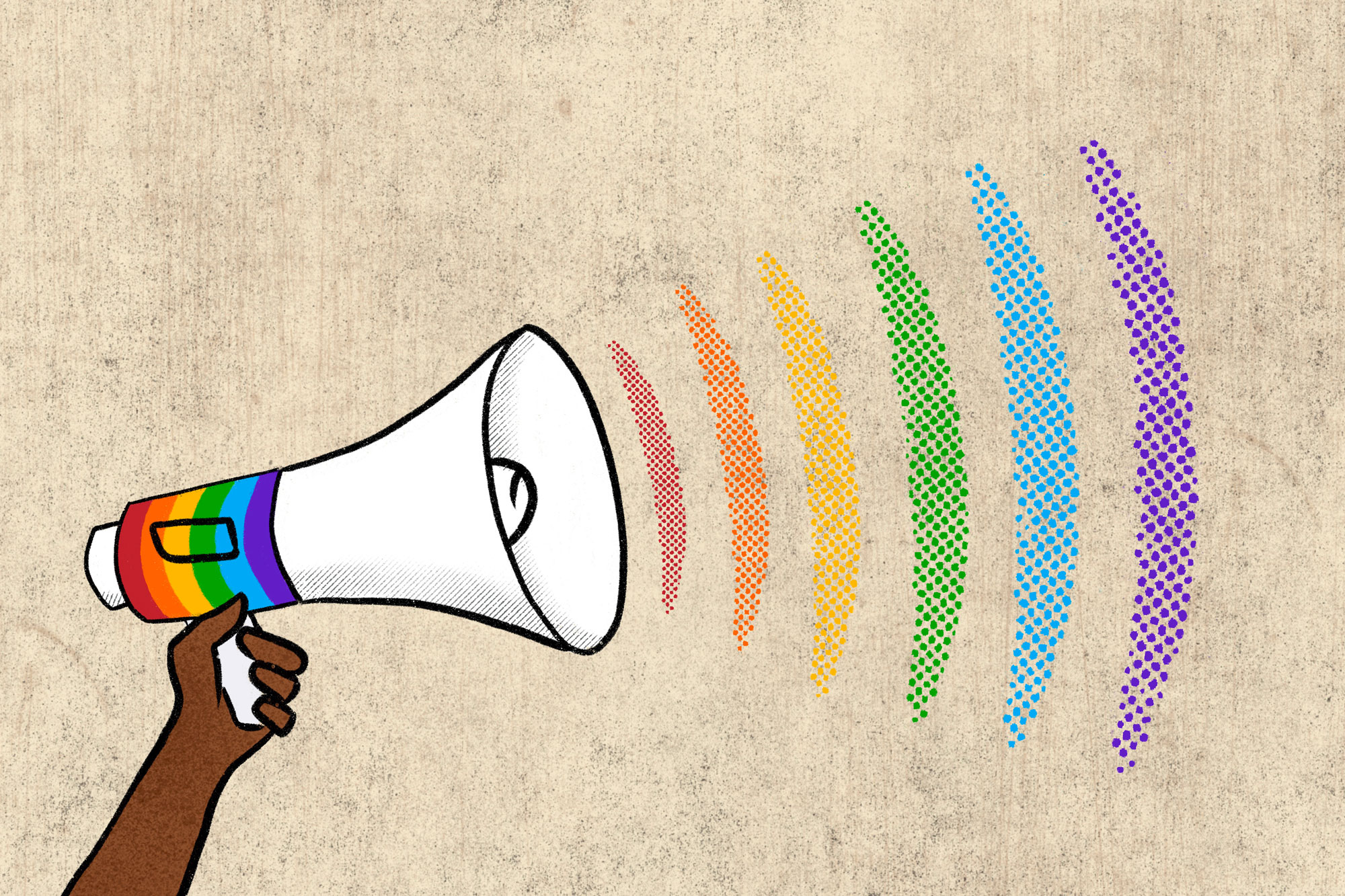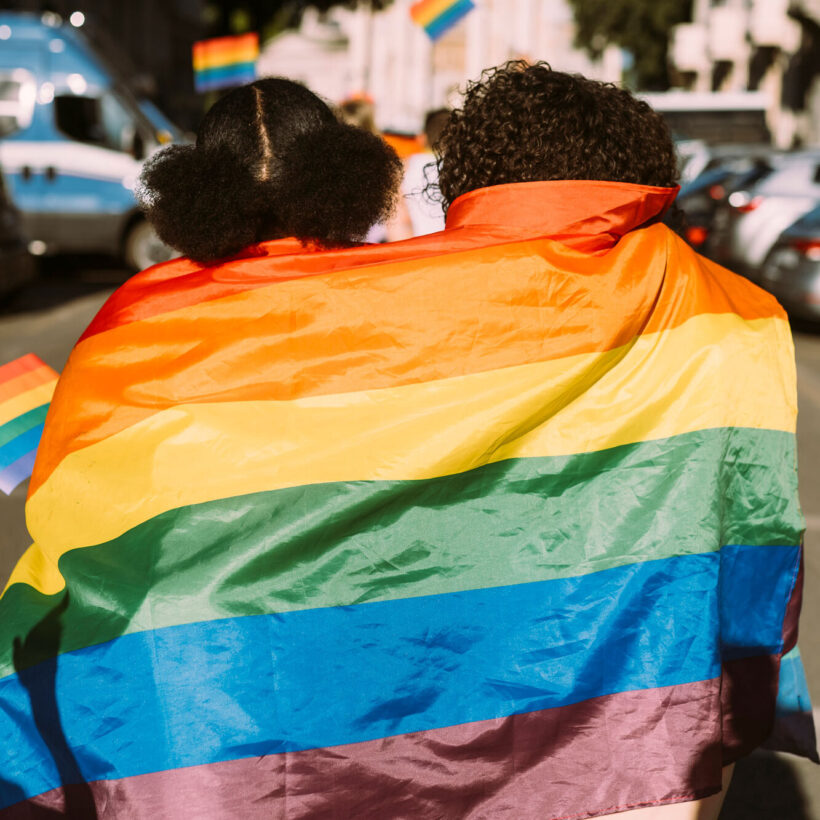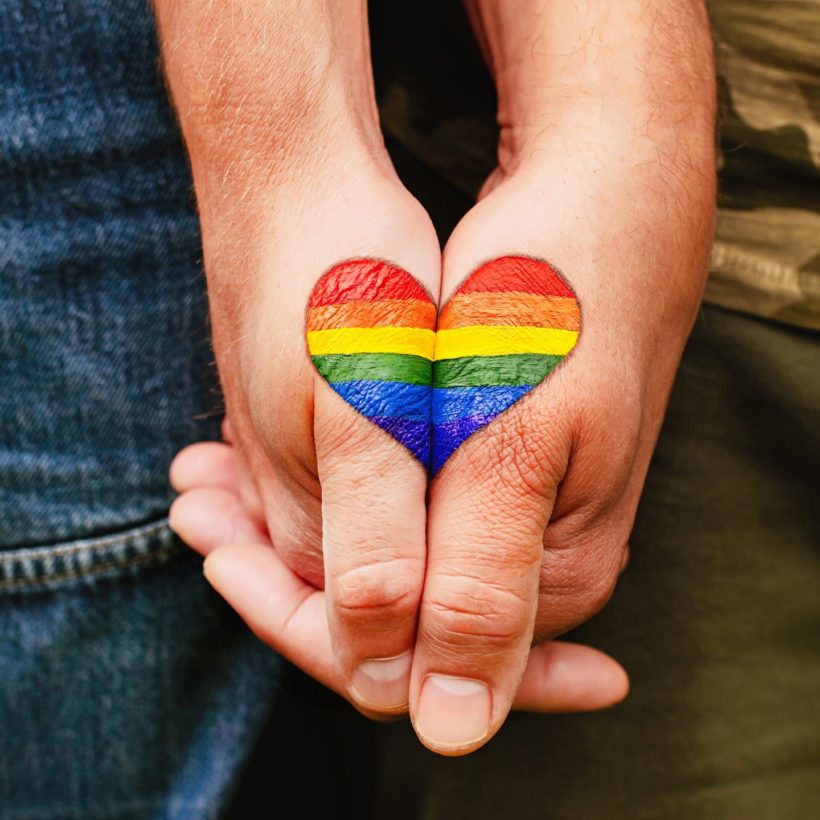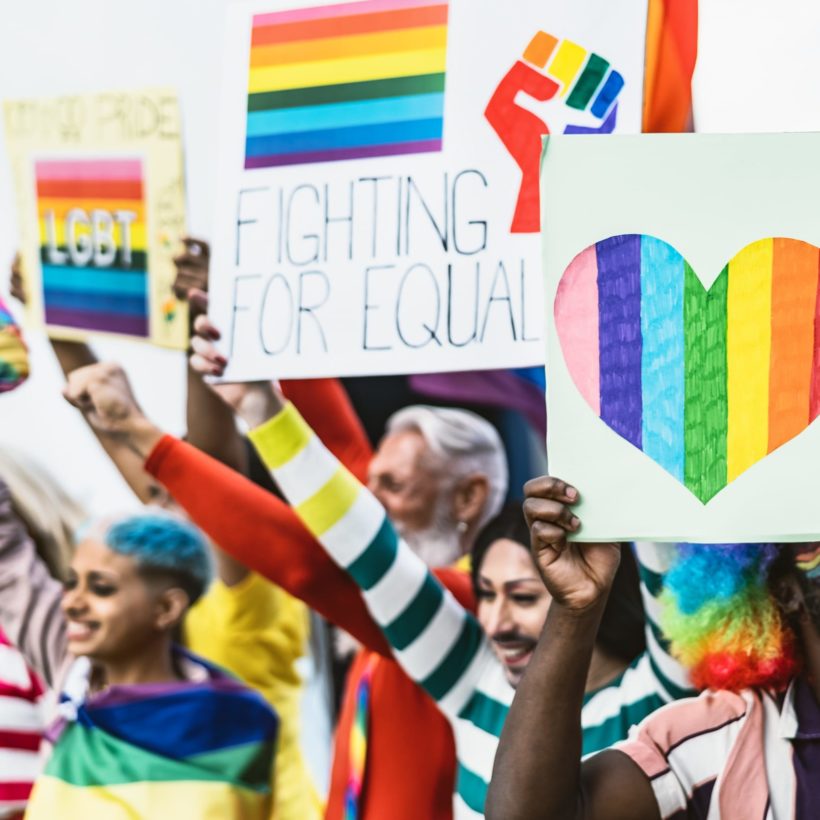There has been more discussion about pronouns than ever before. As workplaces become more aware of the importance of addressing their employees by their preferred pronouns — and not necessarily those they were assigned at birth — we all become more aware of our preconceived assumptions about others. We celebrate and lift up the LGBTQIA+ community this month, but being an ally is more than using the correct pronouns. Beyond June’s Pride Month, it requires ongoing commitment to support, fight for, and listen to our LGBTQIA+ friends, family members, and neighbors. Here are actions to take that can make a lasting impact:
Be more than ‘okay with it’ — be an ally.

You don’t have to go big to make a difference at home. As a gay man growing up in a conservative, Catholic family, Sean Johnson, a brand marketing professional at John Frieda, was hesitant to come out to his family. They meant everything to him, and he feared being loved less. When he came out, those closest to him didn’t understand. And not in a homophobic sense, he shared, but they were innocently unexposed and misguided.
Rather than walking away and becoming discouraged, he heard his dad’s words echoing in his head that ‘knowledge is power,’ so he helped his family understand. They listened, they learned — and they grew. “Over time, they sought the advice and support of other parents with LGBTQIA+ children. They joined their employer’s LGBTQIA+ employee resource groups,” he shares. “And one day, I pulled into my parent’s house, and there was a Pride flag waving high from their flag pole.”
Johnson says when we can demonstrate to others that we are no longer just supportive or ‘cool with it’ and instead be a true ally, it speaks volumes. “Sometimes, we can be the loudest and most supportive by putting up a flag and showing you care. You never know what it might mean to someone next door,” he adds.
Improve your listening skills.
There’s an old saying that we have two ears and one mouth, so we can listen more than we speak. And when it comes to better understanding and supporting the LGBTQIA+ community, this couldn’t be more important. Listening, without judgment, is critical to allyship. As Nick Florek, the co-founder and COO of Here Here Market, reminds us, every person in the LGBTQIA+ community goes through a coming out process. And being heard by friends and family members during — and after! — this milestone can shape their sense of self and community. “By being a good listener, that person likely will feel they can trust and talk to you, which can mean the world to him/her/them,” he adds.

Create a safe space.
Because there are ongoing threats to the safety and rights of the LGBTQIA+ community in the United States and many parts of the world, many feel justifiably uneasy. Part of your role as an ally is ensuring you’re a welcoming and accepting landing pad and listening ear. According to Kate Huyett, the chief customer officer at Bombas, there are many ways to do this. “If you’re queer, coming out makes it easier for others to do the same. If you have queer family or friends, be open about that. If you are watching TV with LGBTQIA+ themes, talk about it like any other show,” she continues. “For someone in the closet — or even someone who’s out — they’ll be very quick to pick up those signals, and it’ll help them be more comfortable coming out.”
Huyett says she always finds a way to mention my wife in conversations with new people or in settings where I’m speaking to a broader group because she’s never sure who could be listening that needs that safe space. “One of my brothers does this too: he always tries to find a way to mention my wife and me in conversation with new people to help signal being around him as an LGBTQIA+ person is safe,” she adds.
Don’t be afraid to have difficult conversations.
Though we live in a world of ‘cancel culture,’ it could be more beneficial to lean into those uncomfortable conversations than to turn away from them. Alan Yeoh, the co-founder of Retold Recycling, says these discussions can become game-changers, creating a ripple effect in your local community and circle.
“We’ve been in these situations before: a group of friends making pointed assumptions that so-and-so is ‘so obviously gay,’ or at an extended family dinner where there is debate around bathroom access for transgender people,” he continues. “We should have the courage to counter those views — we may not be able to change everyone’s opinions there and then, but with an empathic presentation of facts and logical reasoning, we could at least plant a seed in their minds that their discriminatory views are wrong.”
Know the laws — and vote.
In addition to being there for LGBTQIA+ friends, it’s also vital to help them make progress on a local, state, and national level, too. That’s why Caitlin Copple Masingill, a founding partner at Full Swing PR, recommends that allies educate themselves on the laws in their zip code. They recommend two starting points:
- The Movement Advancement Project has a wealth of resources to help you understand whether LGBTQ+ people have basic civil rights in your city or state.
- The Municipal Equality Index from the Human Rights Campaign is another great resource to see how your community measures up.
Masingill lives in Idaho, which does not include LGBTQIA+ in the state’s Human Rights Act, but their city, Boise, scores 77 out of 100. “One of the easy things the City of Boise could do differently is adopt transgender-inclusive healthcare benefits,” Masingill continues. “Given that all mainstream physician groups believe gender-affirming care is medically necessary, generally, this is a pretty simple thing to change with your insurance company. I raised this issue when I was a city councilor in Missoula, MT, from 2012 to 2015 and helped the city score 100 percent on the MEI, the first for a city under 100,000 in the Rocky Mountain West. Even if your community is rural, there are positive ways to make a difference.”

And, of course, when it’s your turn to vote, Masingill urges allies to support LGBTQIA+ friendly candidates and elected officials. “These days, trans+ people are most vulnerable since most Americans know someone who is gay, lesbian, or bisexual,” they continue. “It’s important that you find out where candidates running in your area stand on issues of banning medically necessary care for trans youth or banning library books that educate young people in a comprehensive way about sex and gender.”
Attend Pride events.
Many of us know about the gender pay gap where women earn less than women. But the financial gap for members of the LGBTQIA+ community is present, too. As Patrick Gevas, vice president at GreenRoom, reports, trans women earn 60 cents for every dollar the typical worker earns. You are helping to close this injustice by supporting LGBTQIA-owned brands and companies. 
“As we’re approaching Pride month, there will be many festivities all over the country, and it’s important to recall that Pride is much more than a party. Pride can be an excellent way to connect with the LGBTQIA+ community and come out in support of drag performers who often rely on tips and a host of events and programs that can range from rallies, speaking panels on pertinent topics, and family-friendly events that are designed for kids,” he continues. “You might not think about it, but supporting local drag queen story hours in libraries is not only a form of allyship; they’re entertaining and engaging. The best part is all you have to do is show up — a key form of allyship!”
Prioritize intersectionality and consider the human story.
Beyond listening, when you have the opportunity to tell queer stories — make it a human story, not a diversity story. “When we are telling queer stories and promoting their existence and resistance, it’s even more critical to ensure we have a holistic perspective of the community,” says Elsa Ramesh, a data analyst for D&I and Accessibility in the Microsoft Events, Studios, and Communities Organization. “Consider how being queer intersects with race, ethnicity, gender, ability status, income level, and more identities. Very few people roam the planet as just a queer person, so often, their queerness is shaped by other pieces of themselves that intersect to create a whole. Tokenism is also something we need to be extra aware of and mindful around.”









